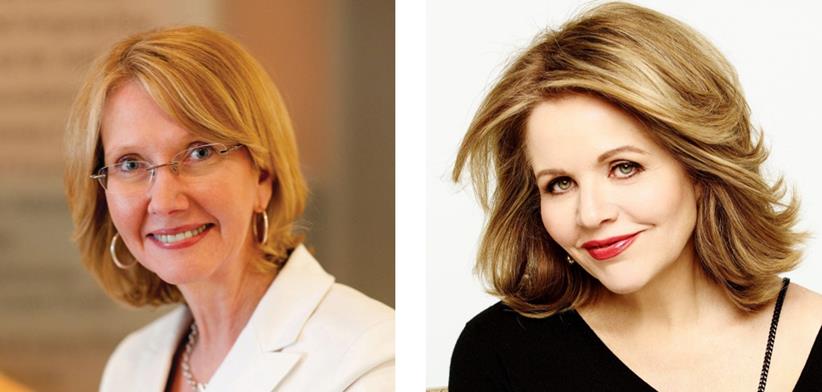Brain Food
Music and well-being: a conversation between Renée Fleming and Ann Meier Baker

Can music improve your health? That’s the question at the heart of Sound Health, a partnership between the John F. Kennedy Center for the Performing Arts and the National Institutes of Health (NIH) in association with the National Endowment for the Arts. Renée Fleming, artistic advisor at large to the Kennedy Center, spearheaded the project. Here she talks to Ann Meier Baker, director of music and opera at the National Endowment for the Arts.
ANN MEIER BAKER: What sparked your initial interest in the connections between music and wellness?
RENÉE FLEMING: Being a singer automatically primes us for curiosity about the mind-body connection, because so much of what we do is executed with involuntary muscles, and therefore, it’s complicated — and all of our voices are different. I was curious when scientists started studying music. I was just kind of an armchair reader about it in the news, when I would see various articles. And then I met Dr. Francis Collins [director of the National Institutes of Health]. It was a dinner on the evening of the Supreme Court’s marriage equality decision, and I was seated between Supreme Court Justices Scalia and Ginsburg. They were on different sides of that ruling, but they both loved opera.
MEIER BAKER: You struck up a conversation with Dr. Collins about a possible collaboration that night?
FLEMING: Yes! Francis is a terrific musician who plays multiple instruments. Music has definitely shaped his brain, his sensibilities, and his work ethic. He’s been very supportive of this collaboration between the Kennedy Center, the NEA, and the NIH. What I love is that he’s got more than 20 NIH Institutes and Centers involved in music and health work, so the fact that they’re collaborating together is already a special thing.
MEIER BAKER: The Sound Health initiative began with concerts, workshops, symposia, and other events. Since then it has expanded to include $20 million in support of research about music and the brain, and soon we’ll launch a Sound Health Network.
FLEMING: Yes, the Sound Health Network will be a one-stop resource center for musicians, scientists, and healthcare providers to help connect the very broad group of people who are working in the sector so they can leverage each other’s discoveries.
MEIER BAKER: The National Endowment for the Arts is pleased to be underwriting the Network, which will be created by a team of wonderful doctors, scientists, and researchers at the University of CaliforniaSan Francisco, as well as a music therapist and researcher from Indiana University.
FLEMING: I think this is going to really be a game-changer.
MEIER BAKER: Before the COVID-19 pandemic put your busy touring schedule on hold, you presented a Music and the Mind program and frequently met with local neuroscientists, music therapists, and arts practitioners in the cities where you were performing around the world.
FLEMING: I’ve given more than 40 presentations throughout the U.S., Canada, Europe, and China. And, basically, we offer it to the presenter as an additional activity to the concert, and — almost unanimously — performing arts organizations have said, “Great!”
MEIER BAKER: You are continuing these efforts virtually now through weekly webcasts of Music and Mind Live with Renée Fleming, which has covered all kinds of topics, from Parkinson’s disease and Alzheimer’s disease, to the power of rhythm and the impact of music on children. You’ve had a huge reach with these webinars.
FLEMING: We have close to 600,000 viewers from 70 countries. When you combine science and the arts, it’s all about curiosity and creativity
Episodes of Music and Mind Live with Renée Fleming can be viewed on Fleming’s Facebook page or on the Kennedy Center’s Sound Health page.
This article was published in the Winter 2021 issue of Opera America Magazine.




